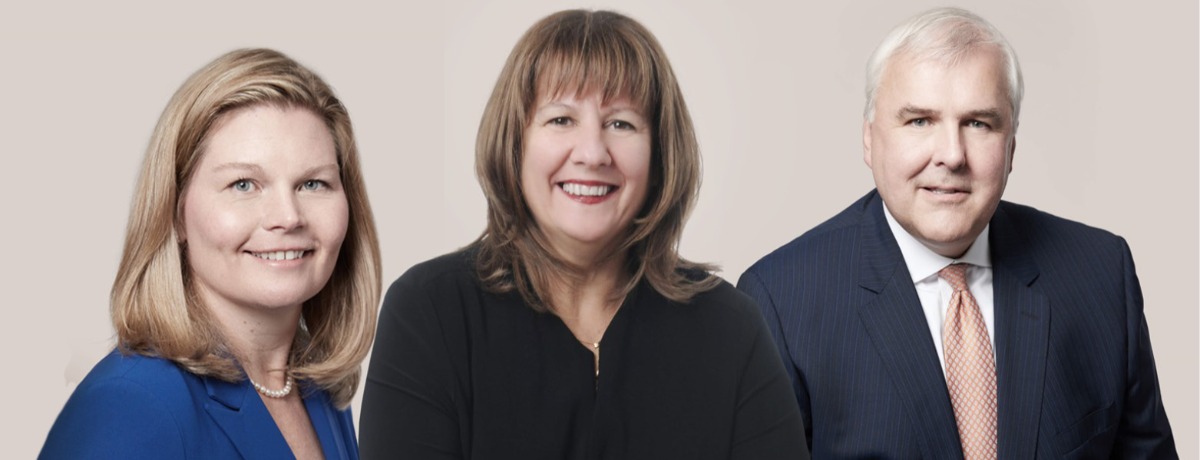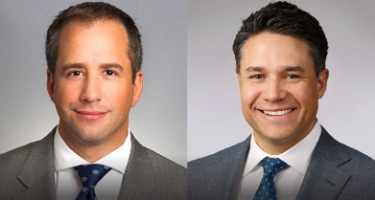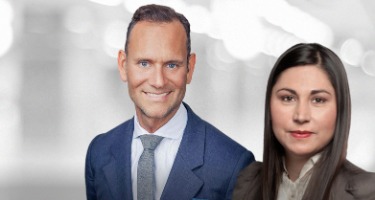In an interview with Best Lawyers CEO Phillip Greer, Karen Sargeant, Claire Vachon, and Martin Denyes of Canadian law firm Fasken discuss their 2019 “Law Firm of the Year” award for Labor and Employment Law. These three leading attorneys look at how technology has changed their practice, the influence of the #MeToo movement, and offer insight to Fasken’s unique mentorship structure.
What achievements are you all proudest of from the last year?
Karen Sargeant: We have had significant achievements on both the client level and the file level. Big wins—Claire will talk a little about some of those, but from a department perspective and from a firm perspective, it's the way that our departments across the country have come together, and all levels of lawyers working together. We have a number of senior lawyers who have had a very long career and who are looking to exit in the next few years, and then we've got very junior lawyers, and then lawyers at every level in between. I am proud of the way that all of those lawyers from every demographic have been able to work together in all of our offices across the country to put the best team forward to serve our clients.
Can you tell me about one or two landmark cases that for your careers at this firm that you all are proud of?
Claire Vachon: If you look in the last past two, three years, you can see that we've been appearing in a number of highly important cases year after year. These have been trendsetting. These have all been opportunities to define how the law evolves. And we're right there, in all those major cases, making law year after year. As an example, we've been involved in probably every single cases in the last five years dealing with the issue of whether the right to strike is constitutionally protected under our Charter’s Freedom of Association provisions. And as you may know, there's been significant changes in the law over the last few years on the subject. We're really embedded in all those cases, either acting for the parties or acting for intervenors. We've acted on many cases, including one out of British Columbia on the scope of a human rights tribunal jurisdiction, which is, again, trendsetting and will define the scope of human rights legislation and how it applies across the country.
In Quebec, we've acted on cases for the Attorney General defending the constitutionality of some amendments to the pay equity legislation in that province, in relation to the Charter-protected right to equality. So, we are really part of a lot of the important, major cases that have been going on for the past few years. And in those cases, it's not only about winning or losing, but it's also about how the law evolves and making sure that the proper balance is achieved and that our clients’ interests are well represented, and I think we do that quite well.
Are there any trends that you've witnessed within the labor and employment law sector in the past year?
Karen Sargeant: Absolutely—lots of new and interesting and evolving areas. The #MeToo movement, of course, has hit us here, which has changed the way a lot of employers investigate and react to complaints. That's been quite significant. We have a growing area in human rights law protections for family status. That's changed the way that employers have to organize their workplaces and respond to employee requests to work different types of shifts or from different types of locations. Of course, marijuana was legalized across this country on October 17th, and medical marijuana has been legal for some time. As you can imagine, employers are very concerned about how this will affect their workplace, and so we're working with employers, revising their policies, getting ready to respond to issues that we see coming.
In what way has technology impacted your firm's work in labor employment law?
Martin Denyes: Technology issues and technology breaches are serious issues for employers and companies, generally. We also have a strong and thriving privacy practice, and there's quite an interaction between the privacy lawyers and the employment lawyers, and some of them, sometimes, are the same lawyers. Helping clients by protecting their resources and addressing employees who may not have done a good job protecting resources is a meeting point for the two practices.
Technology is also having an impact on the way we work. We're using algorithms when it comes to pricing. We've developed some due diligence products that we have managed to turn toward the labor and employment practice that use artificial intelligence products and bring a lot of speed to what we do. We have significant clients who will be dealing with similar issues on a regular basis, and we're able to take some of the litigation products that are available to do repetitive work very quickly.
Does your firm have a mentorship program? And what does it do to help support the practicing attorneys?
Karen Sargeant: Absolutely. We have quite a sophisticated mentorship program. All of our associates at every level are assigned two formal mentors, a junior mentor and a senior mentor. In addition to that, we have many, many people acting in an informal mentor capacity. Mentors are involved in associate reviews, performance appraisals, goal setting, all of those types of things. So, we have a lot of mentorship going on. We take that very seriously vis-a-vis our clients, by trying to provide opportunities both for some of our clients that are looking for mentorship opportunities, and some clients who want to mentor junior people and they don't have junior folks available. Another thing we do, for example, is try to get our lawyers, particularly our associates, opportunities to spend time with associates at our other offices. One associate might visit Vancouver for a week and sit with those lawyers and work with them. We are trying to provide mentorship opportunities, not only locally but right across the country.
We also are quite unique in our diversity. Until earlier this week when we had one of our senior male associates return who had gone to work for the government for a short time, all eight of our associates were women. This is just in the Toronto office. We are really proud of what we've been able to do to retain that number of women lawyers when law firms, as you know, are struggling to retain women.
































